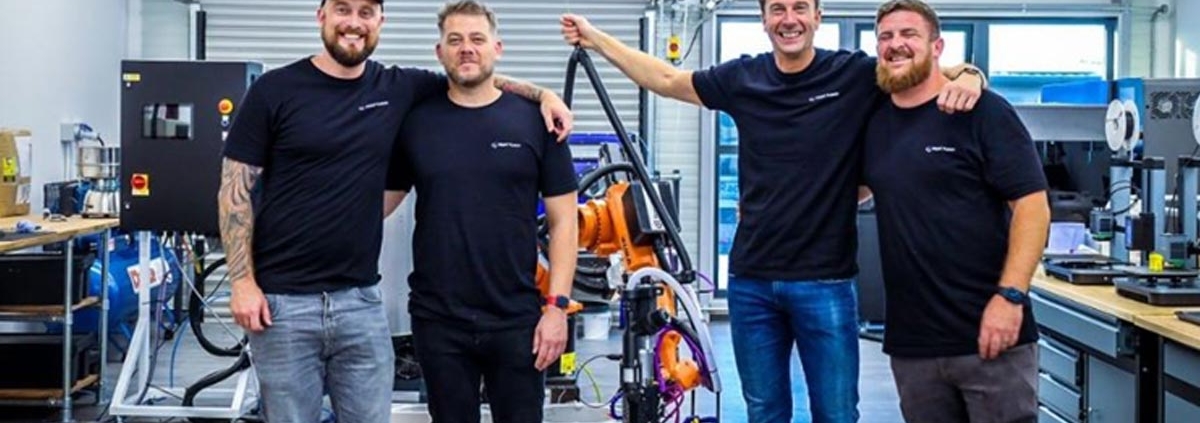Rapid Fusion is set to release Medusa, the UK’s first large-sized hybrid 3D printer
In February 2025, Rapid Fusion plans to officially launch its first domestically manufactured large-size hybrid 3D printer, Medusa, at an open day event held at the Skypark R&D center in Exeter on February 26. This industrial grade equipment cleverly combines additive manufacturing (i.e. 3D printing) and subtractive manufacturing (such as CNC machining) processes, specifically designed for the efficient production needs of large molds and tools in industries such as aerospace, automotive, shipbuilding, and construction.
Medusa’s research and development has received £ 1.2 million in funding support from Innovate UK, with strong support from renowned industry partners such as automotive giant Rolls Royce, 3D printing software company Aibuild, and the National Manufacturing Institute of Scotland (NMIS). The machine adopts a gantry structure design and integrates a particle extruder, filament based printing technology, and CNC machining functions. According to Rapid Fusion, Medusa is designed to run at a speed of 1200 mm per second and build a volume of 1.2 cubic meters. Compared to traditional systems, Medusa not only increases speed by three times, but also has higher accuracy, while effectively reducing training and maintenance costs. Medusa is also equipped with advanced features driven by artificial intelligence, such as predictive maintenance and thermal modeling, which help optimize the entire production process and improve product repeatability and consistency
It is expected that this unveiling event will attract over 150 professionals, including experts from various industries and representatives from partner institutions. Medusa will conduct a practical demonstration at the event site, demonstrating how to make large molds suitable for the aerospace industry, allowing the audience to intuitively experience the powerful functions of this advanced equipment. Currently, Martin Jewell, Chief Technology Officer of Rapid Fusion, is conducting final testing on Medusa to ensure everything is ready.
The development process of large-scale polymer 3D printing technology has been relatively slow, partly due to the relatively niche application scenarios, mainly concentrated in the field of large-sized tools (which is precisely the market that Rapid Fusion focuses on). With the growth of market demand, especially the increasing demand for carbon fiber layup molds and other specialized tools, companies like Caracol and 3D Systems have also discovered enormous potential in this field.
Although 3D Systems’ Titan series is Rapid Fusion’s most direct competitor, considering the demand for localized solutions in different regions around the world, each location requires more than one local manufacturer to meet various specific needs. Therefore, in order to enhance the resilience and redundancy of the supply chain, the UK needs to develop its own advanced manufacturing technology, which can not only better respond to market demand, but also promote the continuous innovation and development of the UK manufacturing industry.




